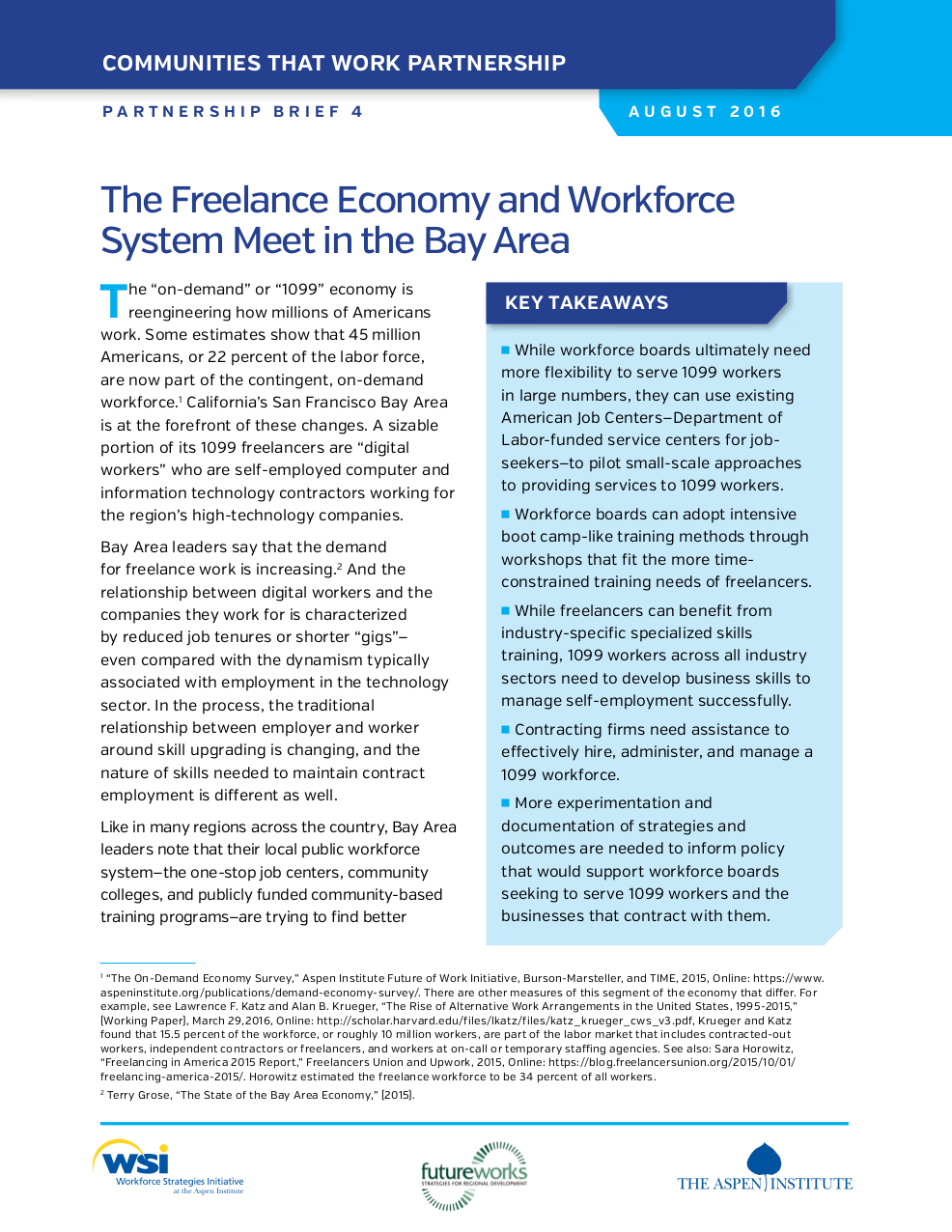The “on-demand” or “1099” economy is reengineering how millions of Americans work, and California’s San Francisco Bay Area is at the forefront of these changes. Four members of the Bay Area team participating in the Communities that Work Partnership (CTWP) set out to understand this challenge and explore how the public workforce development system—the one-stop job centers, community colleges, and publicly funded community-based training programs—could meet the skills needs of freelancers, and the businesses that hire them, in the region’s 1099 economy.
About the Communities that Work Partnership
Skilled workers and good jobs are essential for ensuring robust economic growth, a thriving middle class, and broadly shared prosperity. Increasingly, companies and public agencies — including those in education, workforce, and economic development — are partnering to design innovative ways for workers to gain skills and earn credentials that companies will value and reward. These efforts facilitate the creation of good jobs, support strong businesses, and build healthy communities.
In April 2015, the Aspen Institute Workforce Strategies Initiative jointly launched the Communities that Work Partnership with the US Economic Development Administration. The purpose of this initiative was to document and accelerate the development of employer-led regional workforce initiatives across the country. Seven competitively-selected sites — in Arizona, California, the District of Columbia, Georgia, New York (upstate and NYC), and Texas — participated in a learning exchange focused on bridging economic and workforce development to strengthen local talent pipelines and improve access to quality employment.
Join the conversation on Twitter using the hashtag #communitiesthatwork.



